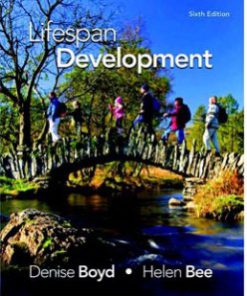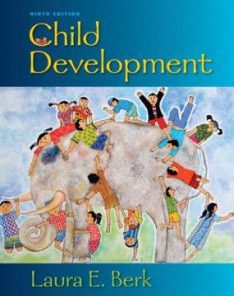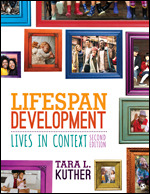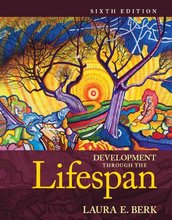Test Bank for Exploring Lifespan Development, 2nd Edition: Berk
$35.00 Original price was: $35.00.$26.50Current price is: $26.50.
Test Bank for Exploring Lifespan Development, 2nd Edition: Berk
Instant download Test Bank for Exploring Lifespan Development, 2nd Edition: Berk pdf docx epub after payment.
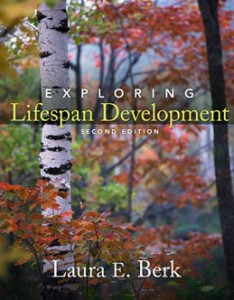
Product details:
- ISBN-10 : 0205748597
- ISBN-13 : 978-0205748594
- Author: Laura E. Berk
Laura Berk, renowned professor and researcher, has refashioned her text to provide the core information in the field with an exceptionally strong emphasis on applications. Visually stunning, pedagogically balanced, and fully integrated, the Exploring edition has all the great features of Development Through the Lifespan, 5e, in an abbreviated form. The latest theories and findings in the field are made accessible to students in a manageable and relevant way.
Berk’s signature storytelling style invites students to actively learn beside the text’s “characters,” who share their influential experiences and developmental milestones. Students are provided with an exceptionally clear and coherent understanding of the sequence and underlying processes of human development, emphasizing the interrelatedness of all domains―physical, cognitive, emotional, social―throughout the text narrative and in special features.
Table of contents:
Part I THEORY AND RESEARCH IN HUMAN DEVELOPMENT 1 History, Theory, and Research Strategies Human Development as a Scientific, Applied, and Interdisciplinary Field Basic Issues Continuous or Discontinuous Development? One Course of Development or Many? Relative Influence of Nature and Nurture? The Lifespan Perspective: A Balanced Point of View Development Is Lifelong Development Is Multidimensional and Multidirectional Development Is Plastic Development Is Influenced by Multiple, Interacting Forces BIOLOGY AND ENVIRONMENT: Resilience Scientific Beginnings Darwin: Forefather of Scientific Child Study The Normative Period The Mental Testing Movement Mid-Twentieth-Century Theories The Psychoanalytic Perspective Behaviorism and Social Learning Theory Piaget's Cognitive-Developmental Theory Recent Theoretical Perspectives Information Processing Ethology and Evolutionary Developmental Psychology Vygotsky's Sociocultural Theory Ecological Systems Theory Comparing Theories Studying Development Common Research Methods General Research Designs Designs for Studying Development CULTURAL INFLUENCES: Immigrant Youths: Amazing Adaptation Ethics in Lifespan Research Summary Important Terms and Concepts Part II FOUNDATIONS OF DEVELOPMENT 2 Biological and Environmental Foundations Genetic Foundations The Genetic Code The Sex Cells Boy or Girl? Multiple Births Patterns of Genetic Inheritance Chromosomal Abnormalities Reproductive Choices Genetic Counseling and Prenatal Diagnosis Adoption SOCIAL ISSUES: The Pros and Cons of Reproductive Technologies Environmental Contexts for Development The Family Socioeconomic Status and Family Functioning Affluence A LIFESPAN VISTA: Worldwide Education of Girls: Transforming Current and Future Generations Poverty Beyond the Family: Neighborhoods, Towns, and Cities The Cultural Context Understanding the Relationship Between Heredity and Environment The Question, "How Much?" The Question, "How?" Summary Important Terms and Concepts 3 Prenatal Development, Birth, and the Newborn Baby Prenatal Development Conception Period of the Zygote Period of the Embryo Period of the Fetus Prenatal Environmental Influences Teratogens Other Maternal Factors The Importance of Prenatal Health Care Childbirth The Stages of Childbirth The Baby's Adaptation to Labor and Delivery Assessing the Newborn's Physical Condition: The Apgar Scale Approaches to Childbirth Natural, or Prepared, Childbirth Home Delivery Medical Interventions Fetal Monitoring Labor and Delivery Medication Cesarean Delivery Preterm and Low-Birth-Weight Infants Preterm versus Small for Date Consequences for Caregiving Interventions for Preterm Infants SOCIAL ISSUES: A Cross-National Perspective on Health Care and Other Policies for Parents and Newborn Babies Birth Complications, Parenting, and Resilience The Newborn Baby's Capacities Newborn Reflexes Newborn States BIOLOGY & ENVIRONMENT: The Mysterious Tragedy of Sudden Infant Death Syndrome Sensory Capacities Adjusting to the New Family Unit Summary Important Terms and Concepts Part III INFANCY AND TODDLERHOOD: THE FIRST TWO YEARS 4 Physical Development in Infancy and Toddlerhood Body Growth Changes in Body Size and Muscle-Fat Makeup Individual and Group Differences Changes in Body Proportions Brain Development Development of Neurons Development of the Cerebral Cortex CULTURAL INFLUENCES: Cultural Variation in Infant Sleeping Arrangements Sensitive Periods in Brain Development Changing States of Arousal Influences on Early Physical Growth Heredity Nutrition Malnutrition Emotional Well-Being Learning Capacities Classical Conditioning Operant Conditioning Habituation Imitation Motor Development The Sequence of Motor Development Motor Skills as Dynamic Systems Fine Motor Development: Reaching and Grasping Perceptual Development Hearing Vision BIOLOGY & ENVIRONMENT: Development of Infants with Severe Visual Impairments Intermodal Perception Summary Important Terms and Concepts 5 Cognitive Development in Infancy and Toddlerhood Piaget's Cognitive-Developmental Theory Piaget's Ideas About Cognitive Change The Sensorimotor Stage Follow-Up Research on Infant Cognitive Development Evaluation of the Sensorimotor Stage Information Processing Structure of the Information-Processing System Attention Memory Categorization A LIFESPAN VISTA: Infantile Amnesia Evaluation of Information-Processing Findings The Social Context of Early Cognitive Development CULTURAL INFLUENCES: Caregiver-Toddler Interaction and Early Make-Believe Play Individual Differences in Early Mental Development Infant and Toddler Intelligence Tests Early Environment and Mental Development Early Intervention for At-Risk Infants and Toddlers Language Development Theories of Language Development Getting Ready to Talk First Words The Two-Word Utterance Phase Individual and Cultural Differences Supporting Early Language Development Summary Important Terms and Concepts 6 Emotional and Social Development in Infancy and Toddlerhood Erikson's Theory of Infant and Toddler Personality Basic Trust versus Mistrust Autonomy versus Shame and Doubt Emotional Development Development of Some Basic Emotions A LIFESPAN VISTA: Parental Depression and Children's Development Understanding and Responding to the Emotions of Others Emergence of Self-Conscious Emotions Beginnings of Emotional Self-Regulation Temperament and Development The Structure of Temperament Measuring Temperament Stability of Temperament Genetic Influences Environmental Influences BIOLOGY AND ENVIRONMENT: Development of Shyness and Sociability Temperament and Child Rearing: The Goodness-of-Fit Model Development of Attachment Ethological Theory of Attachment Measuring the Security of Attachment Stability of Attachment Cultural Variations Factors That Affect Attachment Security SOCIAL ISSUES: Does Child Care in Infancy Threaten Attachment Security and Later Adjustment? Multiple Attachments Attachment and Later Development Self-Development During the First Two Years Self-Awareness Categorizing the Self Self-Control Summary Important Terms and Concepts MILESTONES: Development in Infancy and Toddlerhood Part IV EARLY CHILDHOOD: TWO TO SIX YEARS 7 Physical and Cognitive Development in Early Childhood PHYSICAL DEVELOPMENT Body Growth Brain Development Changes in the Cerebral Cortex Handedness Other Advances in Brain Development Influences on Physical Growth and Health Heredity and Hormones Nutrition Infectious Disease Childhood Injuries Motor Development Gross Motor Development Fine Motor Development Individual Differences in Motor Skills COGNITIVE DEVELOPMENT Piaget's Theory: The Preoperational Stage Mental Representation Make-Believe Play Symbol-Real World Relations Limitations of Preoperational Thought Follow-Up Research on Preoperational Thought Evaluation of the Preoperational Stage Vygotsky's Sociocultural Theory Private Speech Social Origins of Early Childhood Cognition Vygotsky's View of Make-Believe Play Evaluation of Vygotsky's Theory CULTURAL INFLUENCES: Children in Village and Tribal Cultures Observe and Participate in Adult Work Information Processing Attention Memory The Young Child's Theory of Mind BIOLOGY & ENVIRONMENT: "Mindblindness" and Autism Early Childhood Literacy Young Children's Mathematical Reasoning Individual Differences in Mental Development Home Environment and Mental Development Preschool, Kindergarten, and Child Care Educational Media Language Development Vocabulary Grammar Conversation Supporting Language Development in Early Childhood Summary Important Terms and Concepts 8 Emotional and Social Development in Early Childhood Erikson's Theory: Initiative versus Guilt Self-Understanding Foundations of Self-Concept Emergence of Self-Esteem Emotional Development Understanding Emotion Emotional Self-Regulation Self-Conscious Emotions Empathy Peer Relations Advances in Peer Sociability First Friendships Parental Influences on Early Peer Relations Foundations of Morality The Psychoanalytic Perspective Social Learning Theory CULTURAL INFLUENCES: Ethnic Differences in the Consequences of Physical Punishment The Cognitive-Developmental Perspective The Other Side of Morality: Development of Aggression Gender Typing Gender-Stereotyped Beliefs and Behavior Genetic Influences on Gender Typing Environmental Influences on Gender Typing A LIFESPAN VISTA: David: A Boy Who Was Reared as a Girl Gender Identity Reducing Gender Stereotyping in Young Children Child Rearing and Emotional and Social Development Child-Rearing Styles What Makes Authoritative Child Rearing Effective? Cultural Variations Child Maltreatment Summary Important Terms and Concepts MILESTONES: Development in Early Childhood Part V MIDDLE CHILDHOOD: SIX TO ELEVEN YEARS 9 Physical and Cognitive Development in Middle Childhood PHYSICAL DEVELOPMENT Body Growth Health Issues Nutrition Obesity Illnesses Motor Development and Play Gross Motor Development Fine Motor Development Sex Differences Games with Rules Shadows of Our Evolutionary Past Physical Education COGNITIVE DEVELOPMENT Piaget's Theory: The Concrete Operational Stage Concrete Operational Stage Limitations of Concrete Operational Thought Follow-Up Research on Concrete Operational Thought Evaluation of the Concrete Operational Stage Information Processing Attention Memory Strategies The Knowledge Base and Memory Performance Culture and Memory Strategies The School-Age Child's Theory of Mind BIOLOGY & ENVIRONMENT: Children with Attention-Deficit Hyperactivity Disorder Cognitive Self-Regulation Applications of Information Processing to Academic Learning Individual Differences in Mental Development Defining and Measuring Intelligence Recent Efforts to Define Intelligence Explaining Individual and Group Differences in IQ SOCIAL ISSUES: High-Stakes Testing Language Development Vocabulary and Grammar Pragmatics Learning Two Languages at a Time Learning in School Educational Philosophies Teacher-Student Interaction Teaching Children with Special Needs How Well Educated Are North American Children? Summary Important Terms and Concepts 10 Emotional and Social Development in Middle Childhood Erikson's Theory: Industry versus Inferiority Self-Understanding Self-Concept Development of Self-Esteem Influences on Self-Esteem Emotional Development Self-Conscious Emotions Emotional Understanding Emotional Self-Regulation Understanding Others: Perspective Taking Moral Development Learning About Justice Through Sharing Moral and Social-Conventional Understanding Understanding Individual Rights Peer Relations Peer Groups Friendships Peer Acceptance BIOLOGY & ENVIRONMENT: Bullies and Their Victims Gender Typing Gender-Stereotyped Beliefs Gender Identity and Behavior Family Influences Parent-Child Relationships Siblings Only Children Divorce
People also search:
Exploring Lifespan Development
Exploring Lifespan Development Berk
Exploring Lifespan Development Berk 2nd
Exploring Lifespan Development Berk 2nd Test Bank
Test Bank for Exploring Lifespan Development, 2nd Edition: Berk Download




